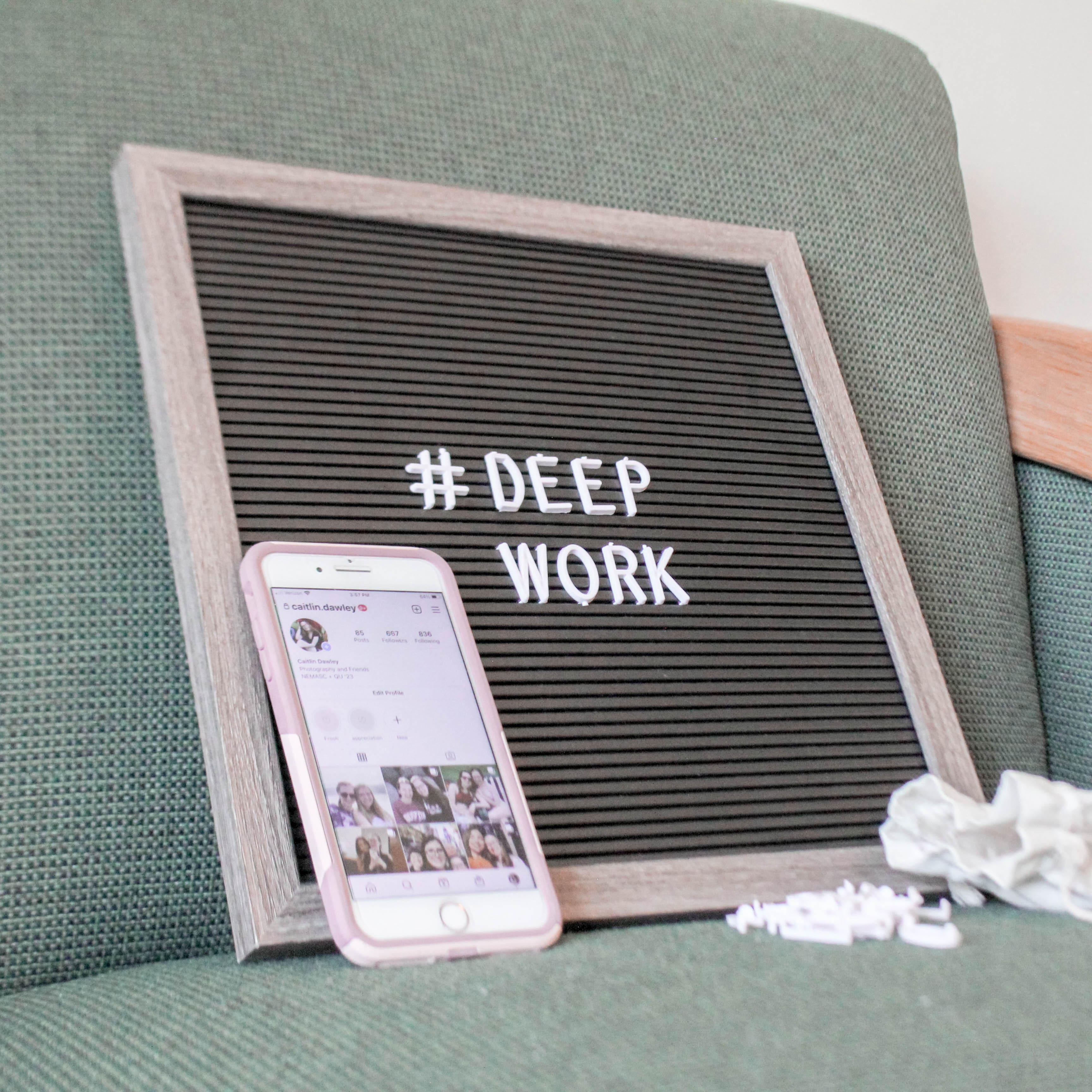
Deep Work, a book written by Cal Newport, dives into the practice of deep work and its ability to help individuals both personally and professionally. In chapter 2, the main topic is the way current work practices limit an individual’s ability to focus and create in-depth work. He argues that all the additions that allow for collaboration and fast communication are just distracting from effective work. Email notifications and open office set-ups will cause the mind to wander and break up moments of productivity.
It was interesting to hear his perspective because I do believe that in the digital world having fast-paced communication is incredibly important. Newton doesn’t negate this fact but rather emphasizes that deep work will be more helpful than constant check-ins. He believes that allowing employees to take time to focus on their work without interruptions will lead to a better workplace environment. He backs up these claims by citing a study where a boss asked her employees to take one day off a week. Many of the workers were worried that their clients and work would suffer due to this change. Instead, they found more enjoyment in their craft and presented stronger communication skills.
This past summer, I was a remote intern for the Television Academy. This is an organization that is based in LA and is mostly known for putting on the PrimeTime Emmy Awards. Due to the world still adjusting to life in the pandemic, I had to do work from my home in Massachusetts. It feels easy to say that Deep Work is a good solution for workplaces, but the biggest downside is that it isn’t crisis-proof. The beginning of the pandemic may have given people more time to spend with their work, but it also caused communication’s importance to increase greatly. I was dependent on my advisors’ communication to stay productive. They would assign me tasks through slack and email so I could use my time efficiently. If they were all too busy doing deep work, I would have been lost without tasks. Therefore, while I think deep work is beneficial, I also think communication can not be overlooked (especially if you are managing others).
Another argument that got me thinking was Newton’s view on social media. It feels clear to me that he is not a big fan of the platforms. While I do understand some of his arguments about unnecessary posts, I also think he has a slightly narrow view of things. To be fair, he is mostly examining social media as a forced activity to gain engagement. The people he describes are using it to supplement their work. Social media marketing is one of the fields that I am interested in pursuing. I have a slightly different view since my job would be content creation and posting. I have seen amazing posts on social media that have taken time and energy. Those posts allow people to think about topics or decisions they normally would have overlooked. If social media is a priority, I think some amazing work can come out of it. I also think social media can help other fields. He believes it distracts from in-depth journalism work but it could inspire and connect. A journalist may find their next story by interacting with the medium. Plus, they could find new contacts and sources to further their investigations. I understand Newton’s concerns, but I believe that social media has more benefits than he is presenting.
Overall, I am intrigued by the thoughts presented in this chapter. I do think workplaces should experiment with different environments to discover what creates the most fruitful experience. While constant communication may interfere with deep work, I don’t know if I feel confident in ranking one as better than the other. Instead, I believe there is a time for both. Maybe you spend an hour responding to all your emails and communicating with co-workers. Then spend the next two hours focusing on your task. Then if you take a break and communicate, you may gain a new angle or gather other perspectives for your work. Then when you sit back down to deep work you will have a more diverse outlook on your topic.


